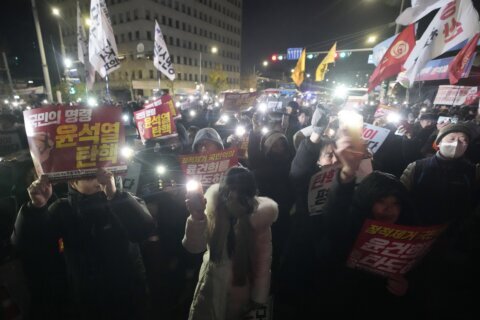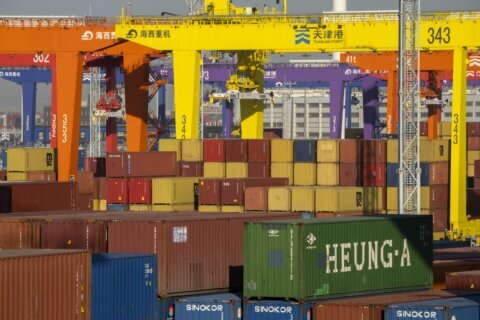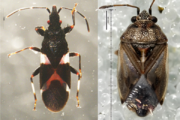PHNOM PENH, Cambodia (AP) — Cambodian freelance reporter Mech Dara, noted for investigative reporting in a country with limited press freedom, was arrested Monday, a leading local human rights organization and a journalists association said.
Known especially for investigating online scam centers, Mech Dara’s arrest followed posts he made about a rock quarry that local officials denounced Monday as an attempt to foment dissent.
Mech Dara managed to send an SMS message to the rights group Licadho saying he was being arrested by military police before his phone was seized, said Am Sam Ath, a Licadho spokesperson.
The Associated Press was not immediately able to confirm the arrest, news of which circulated Monday night after government offices were closed. However, CamboJA News, a project run by the independent Cambodian Journalists Alliance Association, published details of the incident, citing unnamed members of Mech Dara’s family.
CamboJA on its Facebook page also reported that military police spokesperson Eng Hy confirmed the arrest, saying it had been carried out with a warrant, but did not give the cause or say where Mech Dara had been taken.
A family member whom CamboJA did not name said Mech Dara’s car was stopped at a toll booth at the entrance to the expressway to Phnom Penh when police arrived in a military vehicle and five other cars. The relative said the authorities cited an arrest warrant, but did not show the document.
The relative said Mech Dara’s phone was seized and that his family members were asked to stay in their car and remain silent.
The police action may have been related to two images Mech Dara posted on his Facebook page of a quarry operation and of the revered mountain Ba Phnom, which has a Buddhist pagoda, in the southeastern province of Prey Veng. His post may have implied that the sacred mountain wastatephotos@ap.org s being destroyed, which appears not to be the case.
On Monday, the Prey Veng provincial administration issued a statement rejecting his post, and accused him of “wanting to cause social disorder or confusion,” which can be prosecuted as a criminal offense. The province also called on the Information Ministry to take legal action against him.
Mech Dara previously worked as a journalist for the Cambodia Daily and the Phnom Penh Post, two once-vibrant English-language newspapers forced to shut down under government pressure, and the V oice of Democracy radio and website, which was closed by the government last year.
Mech Dara is best known for his reports in the past few years about human trafficking connected to online scam operations. The activity involves tricking people into signing up for what they believe are legitimate jobs in Cambodia, only to then keep them in virtual slavery in compounds often housing casinos as well, where they they go online to target people around the world.
In a scam known as “pig butchering,” scam operators slowly build up a relationship of trust with their targets, often involving romance, before convincing them to hand over large amounts of money for fake investments.
The practice has been going on for several years, based mostly in Cambodia and Myanmar, and recently has drawn heightened law enforcement attention in the United States, where people have been cheated out of millions of dollars.
The U.S. State Department honored Mech Dara as a 2023 Trafficking in Persons Report Hero for his work exposing the problem.
The Paris-based group Reporters Without Borders in its latest report ranked Cambodia 151st out of 180 in its international press freedom index.
“The main broadcasters and the few remaining newspapers generally toe the government line. Many subjects are impossible to cover, such as political opposition, corruption and deforestation,” said the group. “Despite the growing number of online media outlets, few provide balanced reporting. Only a few independent Cambodian media, broadcasting from abroad, provide quality news coverage.”
——-
Associated Press writer Peck reported from Bangkok.
Copyright © 2024 The Associated Press. All rights reserved. This material may not be published, broadcast, written or redistributed.






